To know RM, leader of BTS, is to know his art.
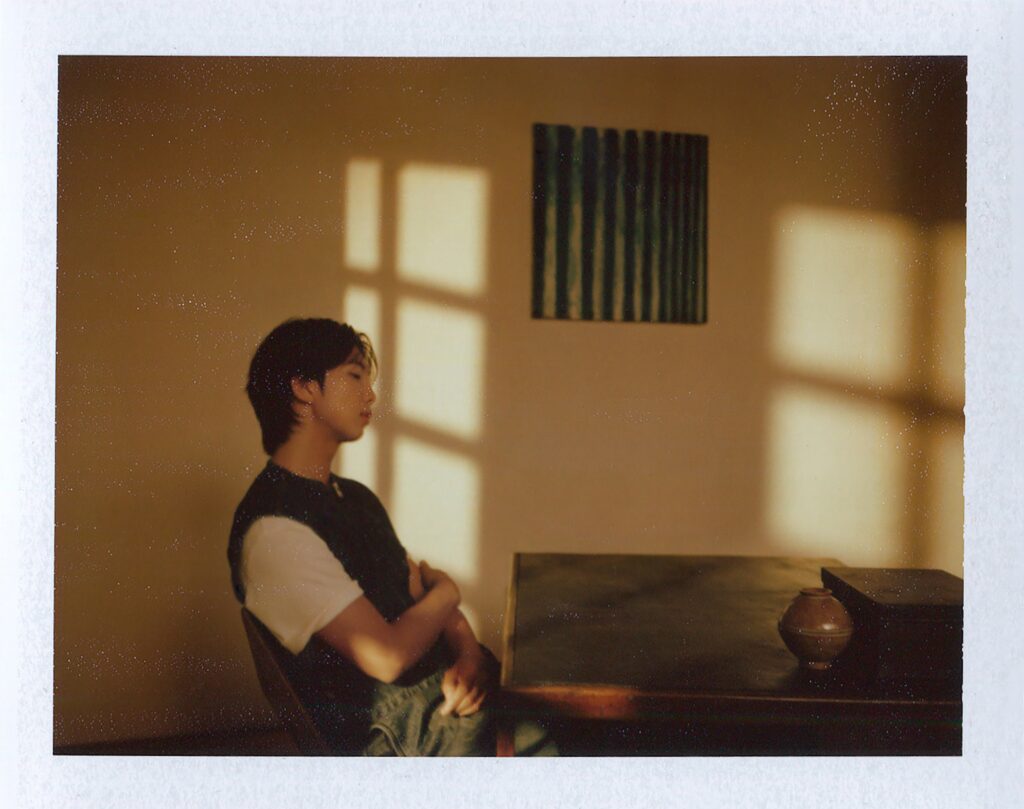
RM recently released his first solo album 15 years after he started pursuing music. The 10 curated tracks of Indigo, named for his favorite color, reveal Kim Namjoon the artist who strives for balance. He also seeks to understand where he is right now—or rather, where he was when he wrote each song. Through Indigo, RM seeks to rediscover who he is in the midst of turbulent changes.
BTS just passed their 10 year anniversary as a band, but that does not mean that they have always walked the flower path, free from experiencing change. From releasing record-breaking singles and losing their soul, to reflecting on their history and reaffirming their proof, the group’s growing pains have been forced into the spotlight countless times through the past few years. Most recently, the seven members shifted gears ahead of eldest Jin‘s enlistment.
But, as BTS are very familiar with, you never walk alone—even if you think you are. Longing and loneliness are recurring threads in RM’s second mixtape, Mono (2018), and they appear again in Indigo. However, it is telling that the burgeoning soloist crafted a collaborative piece of art for his first full-length album. Save tracks six and seven (the latter which is curiously titled “Lonely”), the 10 songs of Indigo always have a “with” attached to them, not just “featured.” By actively bringing together other notable singers, producers, and songwriters, RM proves that art never has to be created alone.
As a result, RM’s solo album release is stronger and surprisingly more cohesive with the voices, skills, histories, and stories of the other artists who joined him in this effort. This decision starkly contrasts with the first lyrics of “uhgood” from Mono: “All I need is me.” The song closes with RM grieving the dissonance between his BTS leader persona and his identity as Kim Namjoon:
My ideal and reality—They are too far apart
But, still I want to cross the bridge
And reach me
The real me
In 2017, RM officially changed his stage name from “Rap Monster” to his current moniker, citing that it can stand for “real me.” This theme of searching for one’s true self appears throughout RM’s music, such as “Reflection,” “Intro: Persona,” Mono, and now Indigo. This “last archive of [his] twenties” might just be that bridge he sought in 2018.
The first thing RM sings in “Yun” with Erykah Badu is “F*ck the trendsetter.” With these three words, he sheds his celebrity identity as the leader of BTS, arguably worldwide trendsetters themselves. Instead, RM welcomes listeners to his “curated exhibition,” his time capsule, as Kim Namjoon/RM the artist. “Yun” builds a firm foundation by drawing inspiration from Yun Hyong-keun, one of RM’s favorite Korean artists. Even the painting featured on Indigo’s cover art, “Blue” (1972), is one of Yun’s.
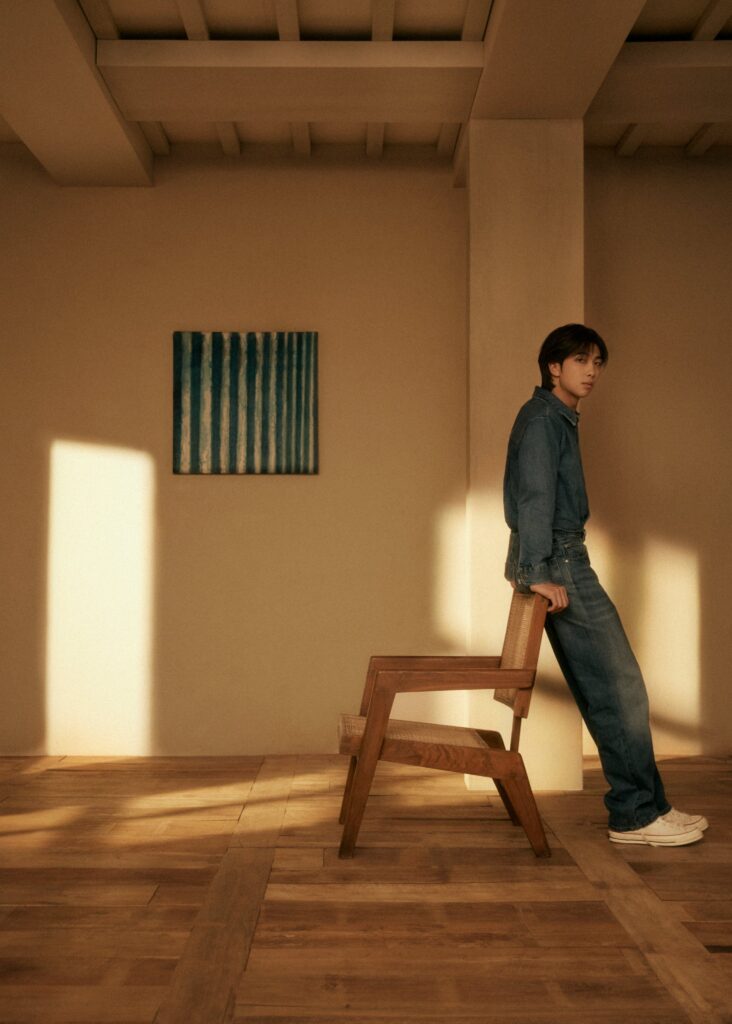
Indigo, which RM likened to his personal diary, begins with a narration from Yun about truth. From there, the 28-year-old musician weaves between speaking to Yun directly and to another “you” in this R&B track while emphasizing that “True beauty is true sadness.” The laidback beat allows RM to begin his next chapter with what he does best, his deeper voice complementing the airiness of Badu’s gentle vocals.
This softness and simplicity adds even more weight to RM’s clearest statement in the song: “I want to be human before I do some art.” Sometimes it is easy to forget that the artists we love are human beings, too. “Yun” reminds us of that humanity while also reminding RM of who he wants to be going forward.
“Still Life” with Anderson .Paak follows the art theme found in Indigo but takes a brighter, funkier approach. Anderson .Paak exuberantly punches the words “I’m still life” while backed with similarly punctuated piano chords and claps. But it would not be an RM album if there was no wordplay or play with pronunciation in his lyrics. “Still Life” does exactly this. Notably, the “f” in “life” is dragged out so that it sounds like a “v” when .Paak sings it. Instead of just referring to still life paintings and their ability to capture a specific, unchanging moment in time, “Still Life” plays with movement. The musicians may be “still life,” but they are also “still alive.” And, as the track concludes, moving forward is the only path they are interested in.
“All Day” runs even further with this idea. While the second track on the album took a witty approach, RM’s collaboration with Tablo of Epik High expresses the two musicians’ unfiltered thoughts. Similar to Tablo’s personality, no corners are cut to ensure that their feelings are crystal clear. RM hits the ground running with his verse, rapping straight out, “Artificial intelligence needs to get lost, fuck the algorithm / I need to get lost in meditation, fuck all the rhythm.”
In this collaboration, Tablo adds the voice of a veteran, of an inspiration who knows what it is like to fall hard, but who also has fought to pick themselves back up and get back at it. Tablo connects BTS and Epik High’s stories by referencing his trio’s song “Fly” in the lyrics, “We know we fly all day.” Like many already know, RM and fellow main rapper Suga have always looked up to Epik High, who are legendary artists in the Korean hip-hop space. Yet Tablo deeply respects BTS as musicians and as people, too, and gives a nod to the group when he joyfully shouts out, “We got dynamite in our DNA.”
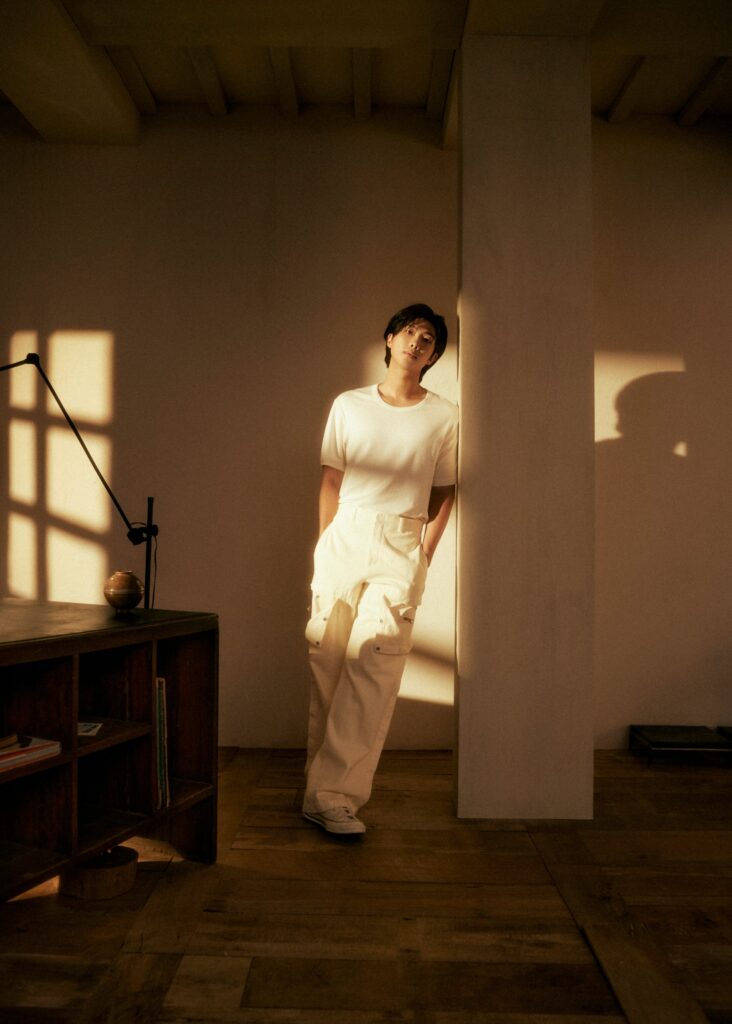
The boundless energy from “All Day” fades in “Hectic,” which Colde co-wrote and features on. The opening hook, “Yesterday was a hectic,” blurs together through RM’s intentional pronunciation. As a result, the line sounds like the rapper is singing, “Yeah today was a hard day,” words that fit well with the track’s theme. It is through “Hectic” that the two artists are given a space to pour out their tiredness with the little energy they have left.
Recorded in 2019, “Forg_tful” featuring Kim Sawol restores that depleted energy with the soft strum of an acoustic guitar and a peaceful whistle. The two artists create a wistful song about memories—or rather, the lack of them. However, the formative moments from when they were younger remain. RM sings, albeit a bit wryly, that nowadays, “We all just forget and live on.” We are so used to often numbing ourselves to the world that we forget how to actually live in the present.
“Change pt.2” takes stock of RM’s present, demonstrating his growth as an artist, a songwriter, and, most importantly, a human being. As fans caught early on, this track is a follow-up to RM’s 2015 collaboration with Wales titled “Change.” Produced by eAeon, who also featured on “badbye” from Mono, “Change pt.2” approaches this common topic differently. Instead of looking internally like he did in 2015 (“I believe real change is in the mirror”), the all-English track illuminates an external focus.
The rapper repeats, almost whisper-singing, “Things change, people change, everything change” before the best drops into a scratchy hook that feels like you have to fight your own brain. The disorienting production draws all the attention, but if you sit with the discomfort for a few seconds more, relief does come in the form of dissonant piano chords. Maybe RM is considering that sometimes you crave this discomfort because it also reflects the ups-and-downs that comes with just living.
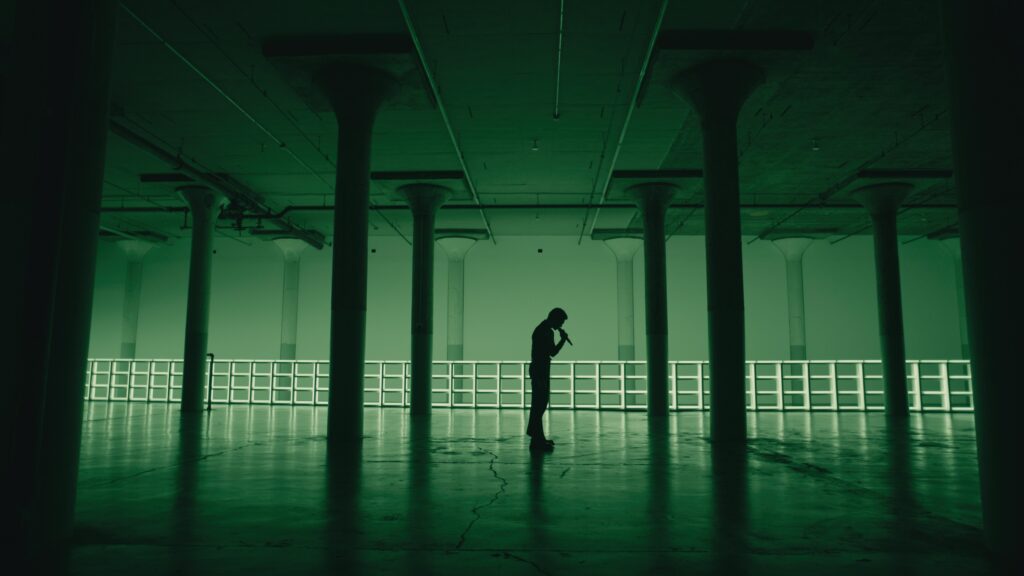
The emotional weight in “Lonely” is juxtaposed with the simple guitar plucking, RM’s frank lyrics, and his singular voice. As he wrote about being homesick while stuck in a Las Vegas hotel room, RM exchanged his flowery language for stripped-down words. He does not beat around the bush, stating bluntly, “I’m fucking lonely.” Not only was he physically trapped in a limited space, but he also experienced being mentally closed in: “I’m trapped in myself.” A jovial melody follows more biting lyrics, including “And now I hate the cities I don’t belong / Just wanna go back home,” a thread RM wove into “tokyo” and “seoul” from Mono as well. The usually unfazed leader ends “Lonely” with a soft plea for a connection, for relief from the crushing isolation as he sings, “Somebody love me.”
The champion of self-love takes a stab at romantic love in “Closer” with crooner Paul Blanco and alt-R&B/soul musician Mahalia. If “Lonely” focused on the distance from others, “Closer” underscores loneliness between significant others despite physical closeness. In this English track, RM stretches his vocal muscles, using his natural scratchiness to add an intimate element to the song’s atmosphere.
The highlight, though, is Blanco’s voice. The earthiness of his timbre and the way his voice lingers balances beautifully with Mahalia’s wispy vocals and the crisper notes she sings. “Closer” is truly a “with” track. As soon as listeners take in this synergy, they understand why RM brought Blanco and Mahalia onto “Closer.” Honestly, it is sometimes easy to forget that this track is from RM’s album, since his voice is heard only for about a minute. But that is the beauty of collaborations, as the seasoned artist stresses in Indigo: you do not always need to be in the spotlight to make good music.

The same effect goes for Indigo’s title track, “Wild Flower.” This explosive song, featuring Youjeen of the Korean rock band Cherry Filter, reimagines the fleeting brilliance of fireworks as“flower works.” “Wild Flower” exhibits RM’s classic wordplay with a poetic image and drives it home with Youjeen, the perfect voice to have on this track. The desperation and rawness in RM’s lyrics continues with Youjeen’s powerfully emotive vocals. Although production-wise, “Wild Flower” does not represent the sound of Indigo as a whole, it does tell RM’s story of reconnecting with himself. To do so, he finds his peaceful space, which is a flower field. While he is here, RM experiences a freeing solitude, an anonymity that cannot be provided to him during his day-to-day life.
BTS—and RM in particular—regularly contemplate identity in their music. In “Wild Flower,” RM references his questions from his solo track “Intro: Persona,” but he also demonstrates a key shift from the Map of the Soul: Persona era to now. In the former, he proudly calls out, “Yeah my name is ‘R,’” which represents his original rapper name, Runch Randa, his first BTS stage name, Rap Monster, and his current one. In his late 20s, however, RM came to realize, “No name, that’s what I have.” There is no pressure to be the leader of BTS, an artist with all eyes on him, or an influential person who cannot misstep. RM is free to be himself.
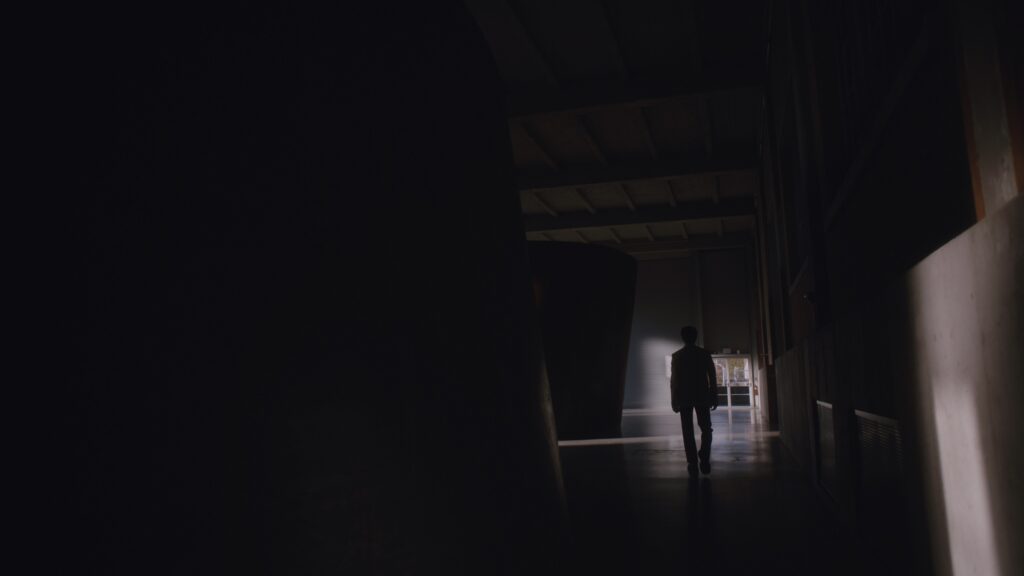
The first lines of “No.2” with Park Jiyoon, the singer behind “Coming of Age Ceremony,” circles back to those of “Yun.” Park Jiyoon sings, “Dear, don’t look back anymore,” setting the atmosphere for “No.2,” while “Yun” prompts, “Turn back the time.” RM journeys through his thoughts and emotions as a late 20-something-year-old in Indigo, but now it is time to move on. As Park Jiyoon and RM echo until the end of “No.2,” “No lookin’ back, no.” When this three-minute track concludes, RM moves into the next chapter of his life, where he explores who he is as a human first, not just as a solo artist or the leader and main rapper of BTS.
In video interviews, RM pronounces “indigo” in a specific way so that it seems like he is saying, “Indeed I go.” And that is what Indigo encapsulates: RM reflects on his past hectic moments, the quiet moments, the lonely moments, and the moments of realization to then keep moving on. He takes a deeply introspective perspective yet looks outward to some of the biggest and brightest creatives in music to help him piece together this archive.
Just like the lyrics of “Still Life,” he and Indigo are “still life that’s still moving forward.” Then here’s to you, RM, and to the future. May the best be yet to come.
(YouTube. Lyrics via Doolset Lyrics. Images via Big Hit Music.)


